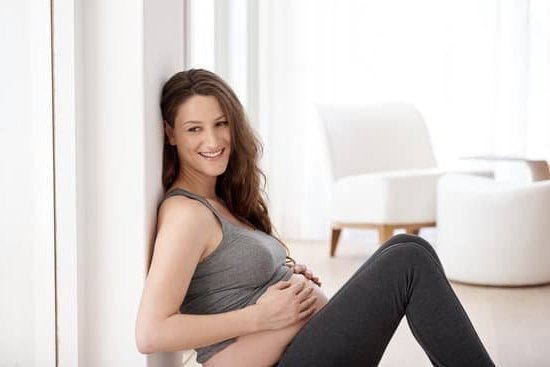First Week Pregnancy Symptoms
Congratulations! If you’re reading this, you’re likely in the early stages of pregnancy. Here are some common first week pregnancy symptoms:
-Nausea and vomiting
-Frequent urination
-Tiredness
-Mood swings
The first few weeks of pregnancy are often a time of great excitement and anticipation, as couples prepare to welcome a new member into their family. However, they can also be a time of great anxiety, as many women worry about whether they are experiencing the symptoms of pregnancy.
Fortunately, most first week pregnancy symptoms are relatively harmless and will disappear once the body adjusts to the new hormonal changes. Nausea and vomiting, for example, is often caused by the increased levels of the hormone hCG, which is produced in large quantities during early pregnancy.
Frequent urination is also common in early pregnancy, as the body’s increased production of progesterone causes the kidneys to work harder to filter the increased blood volume. Tiredness is another common symptom, caused by the combination of hormonal changes and the extra work that the body is doing.
Mood swings are also common in early pregnancy, as the hormonal changes can cause a woman’s emotions to fluctuate widely. Some women find that they become more emotional and sensitive than usual, while others experience a sense of euphoria and excitement.
Although most first week pregnancy symptoms are relatively minor, it is important to consult a doctor if you are concerned about any of them. If you experience severe nausea and vomiting, for example, you may be suffering from hyperemesis gravidarum, a condition that requires medical treatment.
If you have any other concerns, your doctor can help you to determine whether they are caused by pregnancy or something else.
How Soon Does Pregnancy Symptoms Start
?
The earliest pregnancy symptoms typically include missed periods, breast changes, fatigue, and nausea. For most women, these symptoms occur about four to six weeks after conception. However, not all women experience early symptoms, and some women may not experience any symptoms until later in pregnancy.
Pregnancy First Trimester Symptoms
The first trimester of pregnancy is a time of change for a woman’s body. Many women experience a wide range of symptoms, some of which can be quite uncomfortable. While not all women will experience every symptom, here are some of the most common first trimester symptoms:
Morning Sickness: nausea and vomiting are the most common symptoms of morning sickness. These symptoms can start as early as the first week of pregnancy and may continue throughout the first trimester.
Fatigue: feeling extremely tired is another common symptom in the first trimester. This may be due to the changes your body is going through, as well as the added stress of early pregnancy.
Food Cravings and Aversions: some women experience cravings for certain foods, while others may have aversions to certain foods. This is often due to changes in the hormones estrogen and progesterone.
Breast Tenderness: your breasts may become enlarged and tender due to the increase in hormones.
Bloating: you may experience bloating due to the increase in progesterone.
Constipation: constipation is common during early pregnancy due to the change in your hormone levels and the increase in progesterone.
Headaches: you may experience headaches due to the increase in hormones.
Heartburn: heartburn is also common during early pregnancy, due to the changes in your hormone levels and the increase in stomach acid.
It is important to remember that not everyone experiences these symptoms and that they can vary from woman to woman. If you are experiencing any unusual or uncomfortable symptoms, be sure to talk to your doctor.
I Have All The Pregnancy Symptoms But Got My Period
I’m pretty sure that I’m pregnant. I have all the symptoms: fatigue, morning sickness, and a constant craving for pickles and ice cream. But I got my period this week, so I must not be pregnant. Right?
It’s actually not that uncommon to have all the symptoms of pregnancy but to still get your period. In fact, about 1 in 4 women have this experience. The most likely explanation is that you’re experiencing hormonal changes similar to those of early pregnancy, even though you’re not actually pregnant.
These hormonal changes can cause all sorts of symptoms, including fatigue, morning sickness, and cravings. They can also cause your period to be late or to be lighter than usual. So if you’re experiencing all these symptoms and you’re pretty sure you’re pregnant, it’s a good idea to take a pregnancy test to be sure.
If the test comes back negative, there’s a good chance that your symptoms are just due to the hormonal changes of early pregnancy. But if the test comes back positive, then you are definitely pregnant!
Week 6 Of Pregnancy No Symptoms
If you’re like most people, you’re probably wondering whether week 6 of pregnancy is the time when you’ll start to experience symptoms. Unfortunately, there’s no one-size-fits-all answer to that question. Some women experience no symptoms whatsoever during the first six weeks of their pregnancies, while others have quite a few.
The good news is that if you’re not experiencing any symptoms, that’s generally a sign that everything is going smoothly. However, it’s important to be aware of the signs and symptoms of early pregnancy in case something does go wrong.
Some of the most common symptoms of early pregnancy include nausea, vomiting, fatigue, breast tenderness, and frequent urination. If you’re experiencing any of these symptoms, be sure to talk to your doctor.
If you’re not experiencing any symptoms, there’s no need to worry. Just be sure to keep up with your prenatal appointments and take care of yourself in other ways, such as getting plenty of rest and eating a healthy diet.

Welcome to my fertility blog. This is a space where I will be sharing my experiences as I navigate through the world of fertility treatments, as well as provide information and resources about fertility and pregnancy.





